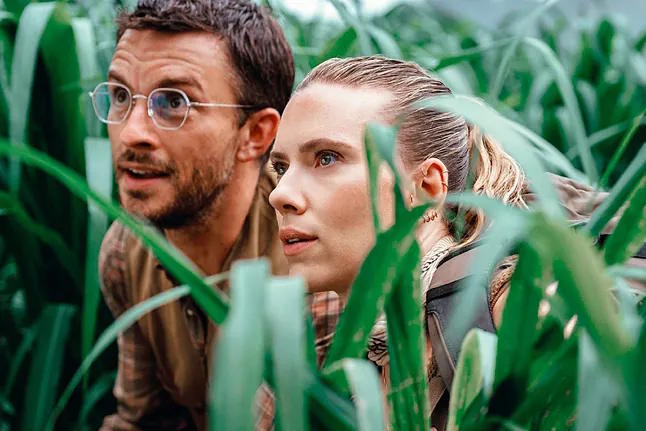The fascination for dinosaurs is, as people with children will know, seasonal. It arrives unexpectedly, intensifies to the point of rash, and, with the same ease with which it took over everything (from wallpaper to underwear), disappears with the puberty meteorite. And it starts all over again with the next child. Twice to date, the Jurassic saga conceived by Spielberg in 1993 has experienced this same cycle of life, let's call it that. The first trilogy crashed against a third installment that, despite the spectacularity and size of the creatures, barely reached a miniature version of the original impulse. The second phase —whose best and most daring installment was signed by J.A. Bayona— directly collided with the already exhausted (and somewhat Cretaceous) comic force of its protagonist Chris Pratt. And now comes the third rebirth that directly opts for the middle ground: a classic adventure plot in service of a development so exaggeratedly hormonal that it is not clear whether it is a simple cloning of the best of the series or just a genetic aberration. Or both.
Gareth Edwards, to whom we owe discoveries like Monsters or wonders like Rogue One: A Star Wars Story, is a brilliant director with a knack for metaphors. And he himself provides a graphic response to the above paradox, which we could well describe as aberrant classicism. The big surprise is that the star creature of his film is not even a dinosaur (and we're not spoiling anything, as it's in the preamble of everything); it is, strictly speaking, another (a result of DNA crosses rather than existentialism). Yes, it moves, threatens, and roars like the giant saurians of always, but it is not clear if its true affiliation is with Scott's Alien, Carpenter's The Thing, or Spielberg's never-ending Jaws. Its scientific name (or almost) is Distortus Rex and, whether intentional or not, it offers a precise definition of the film itself. For what it has of Rex —that is, the usual— and for what it offers of disproportionate perversion —that is, the usual but very distorted—.
On paper, the story picks up where the previous one left off. Dinosaurs share habitat with humans, but with a precision. Climate change or fatigue, which could be anything, has forced them to occupy a small strip of the globe that coincides with the tropics, the equivalent of a shadow for tourists wherever they are (except for Madrid's Puerta del Sol). The issue now is that an evil pharmaceutical tycoon (because they exist) commissions a group of adventurers led by the marine Scarlett Johansson and the up-and-coming Jonathan Bailey (the latter in the role of a silly but sexy scientist) to extract blood from the largest and most dangerous megasaurs that populate the earth, sea, and air for a very profitable vaccine. So far, the usual hero, villain, and impossible mission of any family adventure worth its salt. Do not expect more complications than the Spielberg-made ones. That is, an innocent family with a girl and a rebellious teenager who sneaks into the chaos by pure mistake (very 80s), and a long series of major misfortunes (such as the death of a child, the disappearance of a fellow infantryman, the greed of capitalism...) to pretend, rather than provide, some depth to a too elementary plot.
Edwards bets everything on classicism with an eccentric touch of his own. The idea is to mutate the plot, but without it being noticeable. As Colin Trevorrow did at the beginning of the second trilogy, the mandate of the franchise, and of Steven, is to return to the origins and smooth out the many delusions, inconsistencies, and absurdities of the last installment. The problem is that the return is so thorough, so templated, and so designed to please everyone equally that despite the spectacular creature feature (the creature spectacle), it seems impossible not to wonder time and time again with each scare if all of this is necessary, if everything has already been seen, and if it is time to let the poor Tyrannosaurus Rex devour others in peace. And so on until reaching the climax moment where the supposed mutation, which is actually a cloning of the same, mutates (in a remutance sense) into a simple aberration. The creature is charming, but, as Gila would say, at some point, we must stop killing the same dinosaur over and over again.
Director: Gareth Edwards. Cast: Scarlett Johansson, Mahershala Ali, Jonathan Bailey, Rupert Friend. Duration: 134 minutes. Nationality: United States.
